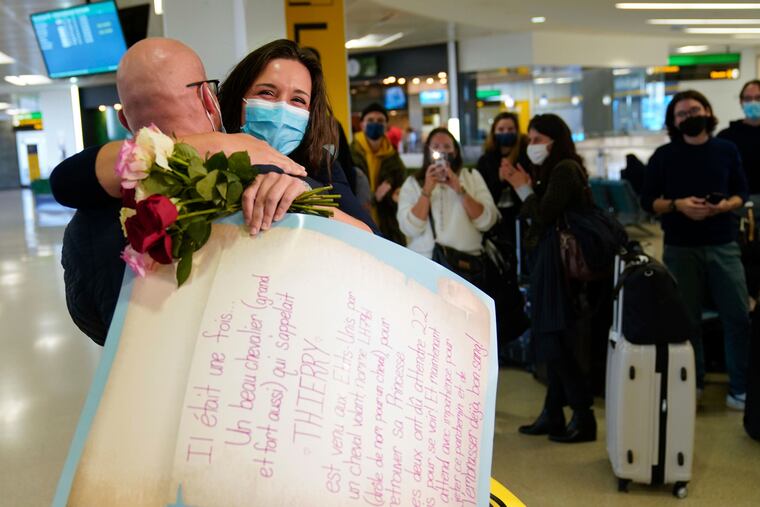For international workers, the COVID travel restrictions have been a nightmare | Opinion
Even though the travel bans for vaccinated people have been lifted, many families are still struggling.

“My father is sick and lives alone. He was supposed to come to the U.S. and stay with me before the pandemic, and he didn’t. I feel so guilty and am really worried.”
“My fiancée is in India and we want to get married. Is this possible or do we need to postpone our wedding?”
“My daughter is 2 years old and has never met her grandparents. I’d like to take her home to meet them.”
These are some of the difficult conversations we have had over the past 19 months. We’re a two-person team who have been coworkers for over a decade in the Office of Immigration and Visa Services at Children’s Hospital of Philadelphia. Our office advises the approximately 400 international staff currently working at CHOP, and those who are planning to come here. They are sickle cell researchers, IT professionals leading command centers, and physicians from across the globe who came to CHOP to pursue advanced training. Essentially, these people make lives better for the rest of us, oftentimes when we are most vulnerable, such as during medical crises.
But during the pandemic, the nature of our conversations with these important members of our workforce has shifted from regulatory matters to much more personal ones. These key members of the CHOP family struggled greatly during the pandemic: For over 19 months, skilled international workers were responsible for driving innovation and discovery, all while separated from their families. Like everyone else, their mental health suffered, but they lacked social safety nets to help them get through it.
» READ MORE: U.S. reopens to international travel for vaccinated visitors, allows happy reunions
These conversations hit home for us: One of us is the daughter of South Korean immigrants who grew up as a third-culture kid, the other is an immigrant from Ukraine who moved to the U.S. when she was 16. We were both drawn to this profession for deeply personal reasons that shaped our careers and lives.
The weight of their struggles left an impact on us. As U.S. Citizenship and Immigration Services (USCIS) processing times ground to a halt, some international employees could not continue working due to lack of work authorization, but could not fly home as they had not yet received the necessary travel documentation to allow them to return to the U.S. It was a cruel irony: Essentially, they were held hostage in a country that represents freedom to much of the outside world.
“Essentially, they were held hostage in a country that represents freedom to much of the outside world.”
As the travel bans were lifted on Nov. 8 for those who are vaccinated, we are deeply relieved for this community. But for international workers, many barriers remain. They can return home to visit family, but ongoing backlogs and other issues at embassies raise concerns that they may not be able to return to the U.S. in a timely manner. Now that the travel bans have lifted, they can bring some loved ones here, but only 40% of the world is now fully vaccinated; for the others, the travel ban remains in effect.
It’s a privilege to serve a dynamic and diverse international population, particularly as we watched them work diligently during the pandemic. We are reminded regularly of the sacrifice and courage it takes to relocate to a new country, leaving your life and loved ones behind. We see the promise and hope of the American dream reflected in the actions of this group, and on the tough days, it’s hard not to present your best self when you’re aware of the backdrop of their lives.
Despite the contributions the skilled international workforce is making to the U.S. economy, they are not getting the needed support from our government. For over a year and a half, we have felt the vulnerability of those we support. Being a U.S. citizen or permanent resident (i.e., a green card holder) provides a psychological benefit most of us take for granted.
We have seen the relief firsthand when international staff finally obtain permanent resident status, and it reminds us of how much more work we need to do to adequately support this population.
Jane Kim and Marta Dusko work in the Office of Immigration and Visa Services at Children’s Hospital of Philadelphia.